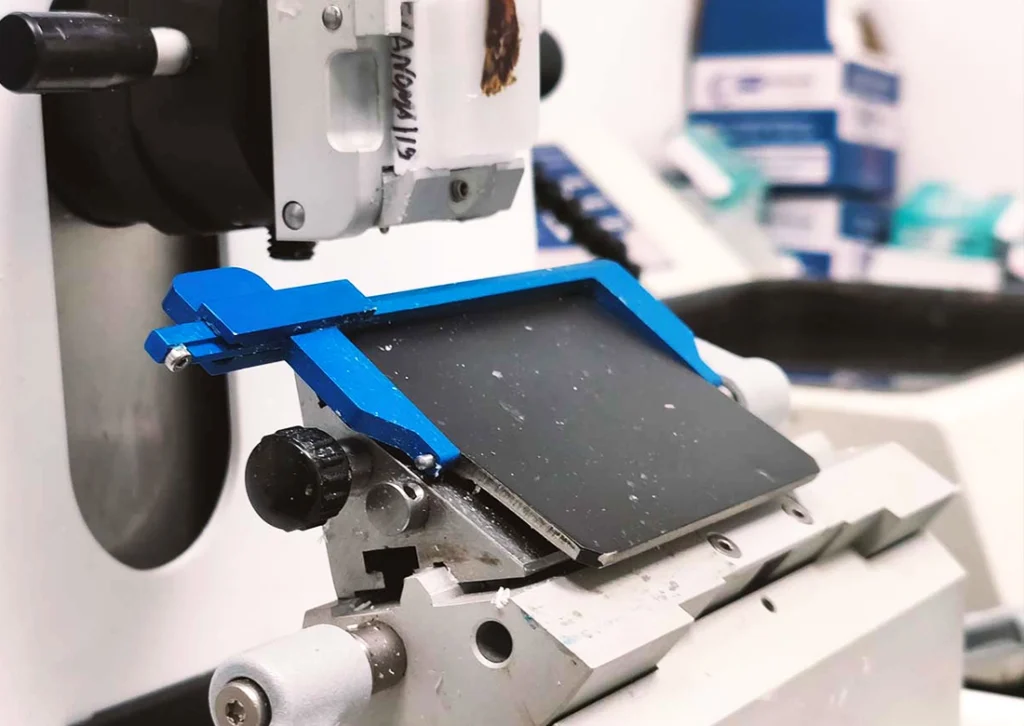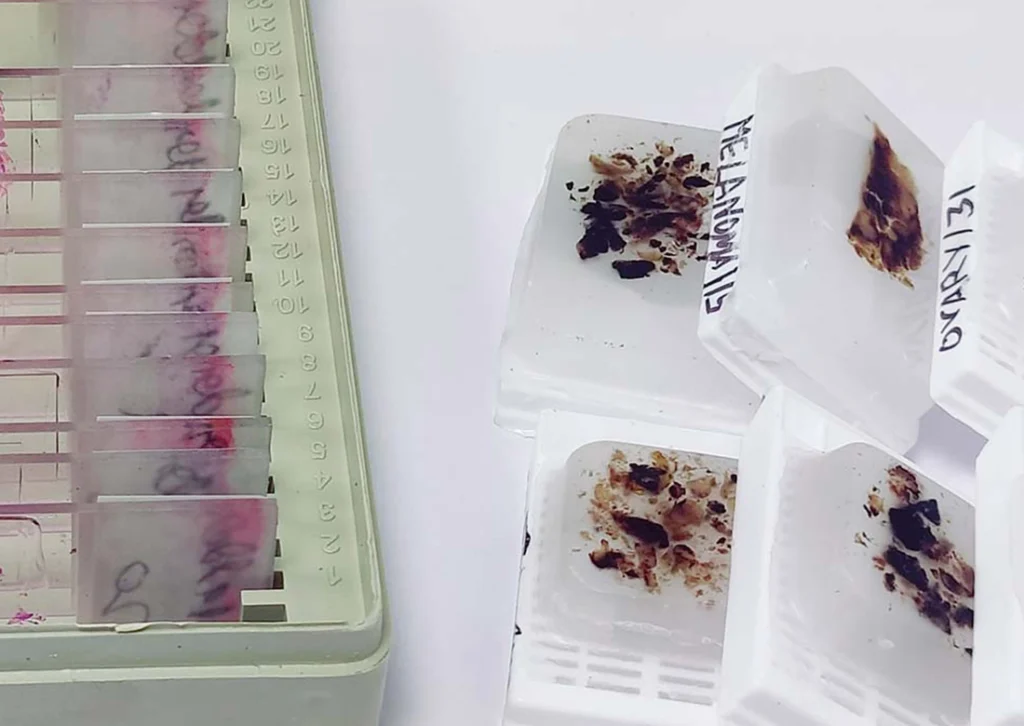- +1 (408)580-1396
- info@ibiospecimen.com
FFPE Blocks
Formalin Fixed Paraffin Embedded FFPE Blocks
Access to the global repository of FFPE blocks from sick and healthy patients.
Large, Large Inventory of FFPE Blocks Dental Materials
ibiospecimen supplier network allows you to obtain quality FFPE blocks from hundreds of warehouses worldwide, taking into account the standards and patient data required for clinical research today.
Across our network, FFPE blocks are harvested according to IRB-approved protocols with procedures that ensure consistency and quality. All samples are written in accordance with standards and best practices.Learn about our archive of FFPE blocks approved for research via permission exemption. These tissue samples are versatile and drive research in areas such as oncology, hematology, and immunology, particularly reproducibility, usability, and immunohistochemistry (IHC) testing. Whether you are doing research, drug discovery, or diagnostic development, we can provide FFPE blocks to do it all.

The ibiospecimen Advantage when Procuring FFPE Blocks
The revolutionary ibiospecimen Marketplace helps researchers find FFPE blocks, materials, and FFPE matching samples for their research.
Finding the Right FFPE Blocks for Research
Using the ibiospecimen Marketplace, researchers can easily search and request FFPE tissue blocks that match the donor profile. These requirements may include, but are not limited to:
- Demographics
- Medical Conditions
- Tests & Test Results
- Medical Procedures
- Outcomes Data.
- Social & Family History

A New, Efficient Way of Finding FFPE Human Tissue Blocks Needed for Research

Streamlined ordering and procurement
For stock storage and preservation of FFPE tissue, search the ibiospecimen Marketplace or simply tell our biospecimen experts what you need. No matter how complex the project, we will help improve the entire procurement process, from feasibility to implementation.

Access to healthy donors
In addition to various infectious diseases through our network, we can obtain FFPE blocks from healthy patients or collect normal tissue from the surrounding area to help differentiate between healthy samples and diseases.

Shipping and handling considerations
Our team of experts is aware that FFPE blocks require a special delivery facility. FFPE samples are shipped at 70°F to prevent the paraffin from freezing or melting. We also ensure that the use of advertising information is appropriate to optimize data retention.
Understanding Patient Acceptance Level
Many organizations use harvested or stored tissue only to conduct research with consenting patients. With the exception of consent, archived FFPE tissue blocks data may be the subject of investigation after the retention period has expired.
Finding new or stored approved samples for many types of research, including repeatability, validation and IHC testing can waste your time and money. Archive blocks can be a very good option. Contact us and our model experts will help you find the ideal model for your research.

Access FFPE Tissue Blocks for Your Research Today
Related Products & Services
General FAQ's on FFPE Blocks
An FFPE block is a common method for preserving tissue samples for histological and molecular analysis. It involves fixing tissues in formalin and embedding them in paraffin wax to maintain their structural integrity.
FFPE blocks are used to archive and store tissue samples for long periods while preserving cellular and molecular components. They are essential for pathological diagnosis and retrospective studies.
Tissue samples are first fixed in formalin, dehydrated through a series of alcohol washes, and then embedded in molten paraffin wax. The wax-embedded tissue is then sectioned for analysis.
- FFPE blocks allow long-term storage of tissue samples at room temperature.
- They preserve tissue architecture and cellular morphology.
- FFPE samples are suitable for a wide range of histological and molecular analyses.
- DNA and RNA extracted from FFPE samples are often degraded, making genetic analysis challenging.
- Some antigens may be masked, affecting immunohistochemical staining.
- The fixation process can introduce artifacts.
FFPE tissue can be deparaffinized, and DNA or RNA can be extracted using specific protocols, such as enzymatic digestion or heat-induced methods.
Properly stored FFPE blocks can remain viable for many years, even decades, at room temperature.
Yes, FFPE samples can be used for genetic testing and sequencing, although the quality of DNA or RNA may vary depending on the age and condition of the block.
Proper safety measures should be followed when handling formalin. Additionally, researchers should use clean tools and avoid contamination when sectioning FFPE blocks.
Yes, alternatives include frozen tissue sections (cryopreservation) and fresh tissue samples. Each has its advantages and limitations depending on the specific research or diagnostic needs.
Yes, FFPE blocks are valuable for retrospective studies as they enable researchers to analyze samples collected in the past, providing insights into diseases and treatment outcomes.
FFPE blocks should be stored in a cool, dry place at room temperature. They should be protected from moisture and extreme temperatures.
